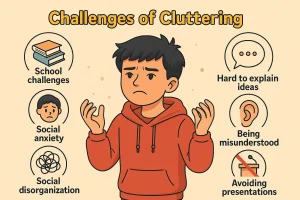15 Red Flags Your Marriage Needs Help
By Prapoorna M
Last Updated: August 1, 2024
Marriage is a beautiful journey, but it’s not without its challenges. Every relationship goes through ups and downs, and sometimes, it can be hard to tell the difference between a rough patch and serious trouble. Recognizing the red flags early can make a world of difference in saving your marriage and bringing back the harmony you once had.
It’s essential to be aware of the signs that indicate your marriage might need help. By noticing these signs early, you can take proactive steps to address the issues before they become insurmountable. This article will guide you through the 15 red flags that could mean your marriage is in trouble, offering practical advice and insights to help you navigate these challenges.
Also read: 5 Signs that your marriage is falling apart
1. Constant Criticism
Constant criticism can erode the foundation of a marriage, leaving both partners feeling undervalued and resentful. When criticism becomes a regular part of your interactions, it creates a toxic environment where positive communication is stifled.
What Constant Criticism Looks Like:
Imagine a scenario where every action you take is met with disapproval or negative comments. For instance, if one partner frequently says things like, “You never do anything right,” or “Why can’t you be more like so-and-so?” it can quickly damage the other partner’s self-esteem and sense of worth. Over time, this can lead to feelings of inadequacy and a lack of motivation to engage positively in the relationship.
Constructive Feedback vs. Constant Criticism:
It’s important to differentiate between constructive feedback and constant criticism. Constructive feedback focuses on specific behaviors and offers solutions, while constant criticism often attacks the person and their character. For example, saying, “I feel overwhelmed when the house is messy; can we create a cleaning schedule together?” is constructive. On the other hand, saying, “You’re so lazy and never help around the house,” is critical and harmful.
How to Address Constant Criticism:
- Self-Reflection: Both partners should reflect on their communication patterns. If you find yourself frequently criticizing your partner, consider why that might be and how you can change your approach.
- Open Communication: Discuss how constant criticism affects both of you. Use “I” statements to express your feelings without blaming your partner. For example, “I feel hurt when my efforts are criticized because it makes me feel unappreciated.”
- Seek Professional Help: If criticism has become deeply ingrained in your relationship, it might be helpful to seek guidance from a marriage counselor. A professional can provide tools and strategies to improve your communication and rebuild trust.
2. Lack of Communication
Open and honest communication is the cornerstone of a healthy marriage. It allows both partners to express their feelings, share their thoughts, and resolve conflicts constructively. When communication breaks down, misunderstandings and resentment can build up, leading to a host of other issues.
Signs of Communication Breakdown:
- Frequent Misunderstandings: If you find that conversations often end in confusion or arguments, it might be a sign that communication is faltering.
- Silent Treatment: When one or both partners stop talking to each other, it indicates a significant problem.
- Avoidance of Important Topics: If crucial issues are being ignored or postponed, it can lead to unresolved conflicts and growing resentment.
Tips to Improve Communication:
- Active Listening: Pay full attention when your partner is speaking. Show that you value their opinions and feelings.
- Express Yourself Clearly: Use “I” statements to express your feelings without blaming your partner. For example, “I feel upset when…” instead of “You always…”
- Schedule Regular Check-Ins: Set aside time to discuss your relationship and any issues that need to be addressed.
3. Emotional Withdrawal
Emotional withdrawal occurs when one partner becomes detached and distant, which can be devastating for a marriage. This withdrawal often leads to feelings of loneliness and abandonment for the other partner.
Behaviors Indicating Emotional Distancing:
- Lack of Interest: Showing little interest in your partner’s life or avoiding conversations about feelings.
- Minimal Physical Affection: Reduced physical contact, such as hugs or holding hands.
- Preferring Solitude: Spending more time alone and avoiding shared activities.
Ways to Re-Engage Emotionally:
- Open Up: Share your feelings and encourage your partner to do the same. Creating a safe space for emotional expression can help bridge the gap.
- Spend Quality Time Together: Engage in activities that you both enjoy to rebuild your connection.
- Seek Professional Help: Sometimes, talking to a marriage counselor can provide the tools needed to reconnect emotionally.
4. Increased Arguments
Frequent arguments can be a sign that deeper issues need to be addressed in your marriage. While disagreements are normal, constant fighting can harm your relationship.
Healthy Disagreements vs. Harmful Arguments:
- Healthy Disagreements: These involve respectful discussion, active listening, and finding common ground. They can lead to growth and better understanding.
- Harmful Arguments: These often involve yelling, personal attacks, and a lack of resolution. They can create lasting damage and resentment.
Strategies for Resolving Conflicts Peacefully:
- Stay Calm: Take a break if things get too heated. Returning to the conversation with a clear mind can help you discuss issues more rationally.
- Focus on the Issue: Avoid bringing up past grievances and stay focused on the current problem.
- Compromise: Be willing to find a middle ground where both partners feel heard and valued.
5. Avoidance of Physical Intimacy
Physical intimacy plays a crucial role in maintaining a healthy and happy marriage. It helps to foster a deeper emotional connection, strengthen bonds, and convey love and affection. When physical intimacy is avoided, it can signal underlying issues that need to be addressed.
Signs That Physical Intimacy is Being Avoided:
- Decreased Frequency: If you notice a significant drop in physical affection, such as hugging, kissing, or sexual activity.
- Lack of Initiation: When one or both partners stop initiating any form of physical contact.
- Excuses to Avoid Intimacy: Constantly finding reasons to avoid physical closeness, like claiming to be too tired or busy.
How to Address and Improve Physical Closeness:
- Communicate Openly: Talk about your feelings and concerns regarding physical intimacy. Honest communication can help you both understand each other’s needs and fears.
- Rekindle Romance: Plan date nights, surprise each other with small gestures of love, and make an effort to reconnect emotionally.
- Seek Professional Help: If the issue persists, consider seeing a marriage counselor or therapist who can help you work through any underlying problems.
6. Secretive Behavior
Trust is the foundation of any strong relationship, and secretive behavior can severely damage that trust. When one partner hides things from the other, it creates a sense of betrayal and uncertainty.
Examples of Secretive Actions That Are Red Flags:
- Hiding Finances: Concealing purchases, secret bank accounts, or unexplained withdrawals.
- Private Communication: Frequently deleting texts or emails and being overly protective of one’s phone or computer.
- Unaccounted Time: Disappearing for long periods without a reasonable explanation.
Steps to Rebuild Trust and Openness:
- Be Transparent: Make a conscious effort to share more about your daily activities, thoughts, and feelings.
- Create a Safe Space: Ensure that your partner feels safe to share their secrets and concerns without fear of judgment or anger.
- Reaffirm Your Commitment: Regularly express your love and commitment to each other, and work together to rebuild trust.
7. Lack of Interest in Spending Time Together
Quality time is a cornerstone of a strong relationship. When partners stop spending time together, it can indicate a growing distance between them.
Signs Your Spouse is Avoiding Spending Time with You:
- Frequent Excuses: Constantly coming up with reasons to avoid shared activities.
- Solo Activities: Preferring to engage in hobbies or outings alone rather than with you.
- Minimal Interaction: Spending little to no time together, even at home.
Ideas for Rekindling Shared Activities and Interests:
- Plan Activities Together: Find common interests or try new activities that you can enjoy together.
- Schedule Regular Dates: Set aside specific times each week for date nights or special outings.
- Be Present: Make an effort to be fully present during your time together, minimizing distractions like phones or work.
8. Increased Focus on Phone or Social Media
Excessive use of phones or social media can create a barrier between partners, reducing meaningful interaction and connection. It’s important to recognize and address this issue to maintain a healthy relationship.
Statistics and Studies:
- 75% of Women in Relationships: Feel that smartphones reduce the time spent with their partner and interfere with their love life.
- 33% of Women: Report their partners looking at their phones during serious conversations.
Ways to Limit Digital Distractions and Reconnect:
- Set Boundaries: Establish specific times when phones and social media are off-limits, such as during meals or before bed.
- Engage in Offline Activities: Find hobbies or activities that require you to be present and engaged with each other, like hiking, cooking, or playing games.
- Prioritize Face-to-Face Interaction: Make a conscious effort to talk and spend time together without the distraction of screens.
9. Financial Secrecy or Problems
Financial issues are a common source of stress in marriages. When one partner is secretive about money or exhibits irresponsible financial behavior, it can lead to mistrust and resentment.
Signs of Financial Secrecy or Irresponsible Behavior:
- Hidden Purchases: Making large purchases without informing the other partner.
- Secret Accounts: Having bank accounts or credit cards that the other partner is unaware of.
- Irresponsible Spending: Spending beyond the family’s means, leading to debt.
Tips for Managing Finances as a Team:
- Open Communication: Regularly discuss your financial situation, including income, expenses, and financial goals.
- Set a Budget: Create a budget together and stick to it. This helps manage spending and ensures both partners are on the same page.
- Transparency: Be honest about all financial matters, including debts and financial commitments.
10. Changes in Appearance or Habits
Sudden changes in appearance or habits can be a red flag in a marriage. These changes might indicate underlying issues or shifts in the relationship dynamics.
What These Changes Might Indicate:
- New Interests: Taking up new hobbies or interests without sharing them with the partner.
- Physical Changes: Drastic changes in appearance, such as a new hairstyle, wardrobe, or fitness routine.
- Behavioral Shifts: Developing new routines or habits that exclude the partner.
Encouraging Open Dialogue:
- Express Concern: Gently express your observations and concerns without accusing or blaming.
- Ask Questions: Show interest in the changes and ask open-ended questions to understand the motivation behind them.
- Be Supportive: Offer support and encouragement, showing that you care about your partner’s well-being.
Tips for Improving Marital Issues
| Issue | Tips for Improvement |
|---|
| Communication Breakdown | – Active Listening: Pay full attention to your partner and acknowledge their feelings. – Clear Expression: Use “I” statements to express your thoughts and feelings without blaming. – Regular Check-Ins: Schedule regular times to discuss your relationship and any issues. |
| Emotional Withdrawal | – Open Up: Share your feelings and encourage your partner to do the same. – Spend Quality Time: Engage in activities you both enjoy to reconnect. – Seek Professional Help: Consider seeing a marriage counselor to address underlying issues. |
| Physical Intimacy Avoidance | – Communicate: Discuss your needs and concerns regarding physical intimacy. – Plan Romantic Activities: Schedule dates and activities that promote closeness. – Get Counseling: Seek professional advice if the issue persists. |
| Financial Problems | – Open Communication: Discuss your financial situation regularly and honestly. – Set a Budget: Create and adhere to a budget together. – Maintain Transparency: Be open about all financial matters, including debts and expenditures. |
| Negative Emotions | – Identify the Source: Understand what is causing the negative emotions. – Communicate Openly: Discuss your feelings with your partner without blaming. – Seek Professional Help: Consider therapy to manage and resolve ongoing negative emotions. |
11. Emotional Affairs
An emotional affair occurs when one partner forms a deep emotional connection with someone outside the marriage, which can be as damaging as a physical affair.
Signs Your Spouse Might Be Having an Emotional Affair:
- Increased Secrecy: Being secretive about their communication with the other person.
- Emotional Distance: Becoming emotionally distant from their spouse while being more engaged with the other person.
- Prioritizing the Other Person: Spending more time and energy on the outside relationship than on the marriage.
Ways to Address and Heal from Emotional Infidelity:
- Acknowledge the Issue: Both partners need to acknowledge the emotional affair and its impact on the marriage.
- Rebuild Trust: Commit to rebuilding trust through open communication and transparency.
- Seek Counseling: Professional counseling can help navigate the complex emotions and rebuild the relationship.
12. Constant Criticism from Friends or Family
Outside criticism can impact a marriage by creating additional stress and tension between partners. It’s important to address this external negativity to protect your relationship.
Signs Your Relationship is Being Criticized by Others:
- Negative Comments: Friends or family members frequently make negative remarks about your relationship.
- Unsolicited Advice: Receiving unwanted advice or opinions about your marriage.
- Undermining Behavior: Actions that undermine your relationship, such as encouraging separation or divorce.
Handling External Negativity:
- Set Boundaries: Clearly communicate with friends and family that their negative comments are not welcome.
- Stay United: Present a united front with your partner, showing that you are committed to each other.
- Focus on Positivity: Surround yourselves with supportive people who respect your relationship.
13. Persistent Negative Emotions
Ongoing negative emotions are a clear signal that something is wrong in a marriage. Persistent feelings of anger, sadness, or resentment can create a toxic environment and drive a wedge between partners.
Signs of Persistent Negative Emotions:
- Constant Anger: Frequent and intense anger towards your spouse over minor issues.
- Chronic Sadness: Feeling consistently unhappy or depressed about the state of your relationship.
- Growing Resentment: Harboring grudges and unresolved grievances that continue to fester.
Strategies for Dealing with Negative Emotions Constructively:
- Identify the Source: Understand what is causing these emotions. Is it a specific behavior, a recurring issue, or something deeper?
- Communicate Openly: Talk to your partner about how you feel without blaming or accusing. Use “I” statements to express your emotions.
- Seek Professional Help: If negative emotions persist, consider seeking help from a therapist or counselor who can guide you in managing these feelings.
14. Lack of Support or Encouragement
Mutual support and encouragement are vital components of a healthy marriage. When these elements are missing, it can lead to feelings of isolation and undervaluation.
Signs That Support and Encouragement Are Lacking:
- Feeling Alone: One or both partners feel like they are facing challenges without the other’s support.
- No Recognition: Achievements and efforts go unnoticed or unappreciated.
- Discouraging Behavior: Instead of uplifting each other, partners are critical or dismissive.
Ways to Be More Supportive and Encouraging:
- Show Appreciation: Regularly express gratitude for your partner’s efforts and achievements.
- Be Present: Actively listen and show interest in your partner’s problems and successes.
- Offer Help: Be proactive in offering assistance and support in daily tasks and challenges.
15. Thoughts of Separation or Divorce
Contemplating separation or divorce is a serious red flag that indicates deep-seated issues within the marriage. These thoughts often arise from prolonged dissatisfaction and unresolved conflicts.
How These Thoughts Can Arise and What They Mean:
- Prolonged Unhappiness: Feeling unhappy for an extended period without seeing any improvement.
- Unresolved Conflicts: Persistent issues that seem impossible to resolve.
- Loss of Hope: Believing that the marriage cannot improve or return to a happy state.
Steps to Take If You or Your Spouse Are Having These Thoughts:
- Open a Dialogue: Discuss your feelings with your spouse in a calm and non-confrontational manner.
- Seek Counseling: A marriage counselor can provide a neutral space to address these thoughts and work through underlying issues.
- Evaluate Your Options: Consider all possible solutions, including whether separation might be temporary and if there are steps you can take to rebuild your relationship.
Common Red Flags and Their Impact
| Red Flag | Impact on Marriage |
|---|
| Constant Criticism | – Lowers self-esteem – Increases resentment |
| Lack of Communication | – Leads to misunderstandings – Results in unresolved issues |
| Emotional Withdrawal | – Causes feelings of loneliness – Leads to feeling of abandonment |
| Avoidance of Physical Intimacy | – Weakens emotional connection – Creates feelings of rejection |
| Financial Secrecy | – Breeds mistrust – Leads to financial instability |
| Persistent Negative Emotions | – Creates a toxic environmen – Causes ongoing tension |
Conclusion
Recognizing the red flags in a marriage is crucial for keeping your relationship healthy and fulfilling. By spotting these issues early, you can stop small problems from turning into big crises. Whether it’s constant criticism, lack of communication, or persistent negative emotions, being aware of these signs can help you take steps to improve your marriage. Every marriage has challenges, but with open dialogue, mutual support, and a willingness to seek help, you can overcome them.
If you notice any of these red flags in your marriage, don’t wait for things to get worse. Take action now to address the issues and work towards a stronger, more loving relationship. For those looking for professional guidance and additional support, Wellness Hub offers many resources to help couples strengthen their bonds. Whether you need tips on communication, strategies for rebuilding trust, or access to professional counseling, Wellness Hub is here to support you. Explore more resources and find the help you need at Wellness Hub. Together, we can build stronger, more resilient relationships.
Frequently Asked Questions:
1: What are common red flags that indicate a marriage is in trouble?
Common red flags include constant criticism, lack of communication, emotional withdrawal, avoidance of physical intimacy, financial secrecy, and persistent negative emotions.
2: How can I tell if my spouse is emotionally withdrawn?
Signs of emotional withdrawal include lack of interest in your life, minimal physical affection, and spending more time alone or away from shared activities.
3: What should I do if my partner avoids physical intimacy?
If your partner avoids physical intimacy, communicate openly about your feelings, plan romantic activities, and consider seeking professional help to address underlying issues.
4: Why is financial secrecy harmful to a marriage?
Financial secrecy can lead to mistrust and resentment. It’s important to manage finances as a team, maintain transparency, and discuss financial goals together.
5: How can sudden changes in my spouse’s appearance or habits affect our marriage?
Sudden changes can indicate underlying issues or shifts in the relationship. Open dialogue about these changes is essential to understand the motivations and address any concerns.
6: What constitutes an emotional affair and how can it affect my marriage?
An emotional affair involves forming a deep emotional connection with someone outside the marriage. It can lead to emotional distance from your spouse and harm the trust in your relationship.
7: How can constant criticism from friends or family impact my marriage?
External criticism can create additional stress and tension between partners. Setting boundaries and presenting a united front can help protect your relationship from outside negativity.
8: What should I do if I constantly feel angry or sad in my marriage?
Persistent negative emotions are a red flag. Identify the source of these feelings, communicate openly with your partner, and seek professional help if needed to manage these emotions constructively.
9: How important is mutual support in a marriage?
Mutual support and encouragement are vital for a healthy marriage. Without it, partners may feel isolated and undervalued. Regularly show appreciation, be present, and offer help to each other.
10: What steps should I take if I’m contemplating separation or divorce?
If you’re thinking about separation or divorce, have an honest conversation with your spouse, seek counseling, and carefully evaluate your options before making a decision.
About the Author:
Prapoorna Mangalampalli
M.Sc., M.A., (Dual Masters in Psychology & English) – Counselor (6+ years of experience)
Prapoorna, with dual Master’s degrees in Psychology and English and over 6 years of experience, elevates human experiences through insightful counseling. She excels in online, marital, relationship, child, family, and career counseling. At Wellness Hub, she thrives in a team environment, valuing innovation, compassion, and client success.
Connect with Prapoorna to find your voice and build a brighter future.
Book your Free Consultation Today
Parent/Caregiver Info:
Client’s Details:
* Error Message









